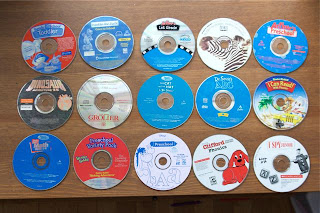One of the odder experiences of aging is living through technology regressions. I’ve seen a few — solutions that go away and are never replaced.
Symantec’s classicMac MORE 3.1 was a great outliner/editing tool with the best style sheet implementation I’ve seen. It died around 1991. The closest thing today would be Omni Outliner — 16 years later. There’s still no comparable Style Sheet support.
Quicken for DOS with 3.5” monthly diskette records of credit card transactions was the most reliable and useable personal accounting tool I’ve experienced — though even it had problems with database corruption. I think that was the 1980s. Today I use Quicken for Mac, a niche product with unreliable transfer of financial information, questionable data security, and limited investment tools.
PalmOS Datebk 5 was an excellent calendaring tool with good desktop sync (for a while the Mac had the best ‘personal information management’ companion). That was in the 1990s. When PalmOS died we went years without an alternative. I briefly returned to using a Franklin Planner. Somewhere around year 3 of iOS we had equivalent functionality again — and a very painful transition.
iOS and macOS have seen particularly painful combinations of progressions and regressions. OS X / macOS photo management was at its best somewhere around the end of Snow Leopard and Aperture 3.1 (memory fuzzy, not sure they overlapped). OS X photo solutions had finally reached a good state after years of iPhoto screw-ups — the professional and home products more or less interoperated. All Apple needed to do was polish Aperture’s rough edges and fix bugs. Instead they sunset Aperture and gave us Photos.app — a big functional regression. Apple did something similar with iMovie; it’s much harder to make home “movies” than it once was.
iOS was at its most reliable around version 6. So Apple blew it up. Since that time Podcasts.app has gone from great to bad to not-so-bad to abysmal. The iPad used to have a great digital picture frame capability tied to screen lock — Apple took that away. For a while there was a 3rd party app that worked with iCloud photo streams, I could remotely add images to my father’s iPad slideshow digital picture frame. There’s nothing that works as well now; as I write this I’m working through a web of bugs and incompetence (I suspect a desperate timeout stuck into iTunes/iOS sync) to sneak some photos from Aperture to an iPad.
Apple Music is following the path of Podcasts.app as Apple moves to ending the sale of music (probably 2019). At the same time iTunes is being divided into dumbed down subunits (iBooks regression). The last 2-3 revisions of iTunes have been so bad that this feels almost like a mercy killing.
We don’t have a way to avoid these regressions. Once we could have gotten off the train, now the train stations are dangerous neighborhoods of lethal malware. We need to keep upgrading, and so much is bundled with macOS and iOS that we can’t find 3rd party alternatives. Data lock is ubiquitous now.
I think regressions are less common outside digital world. It’s true toasters aren’t what they were, but since 2006 Chinese products have become better made and more reliable. Perhaps the closest thing to tech regressions in the material world is the chaos of pharma prices.
This takes a toll. There are so many better ways to spend my life, and too few minutes to waste. I wonder what these regressions do to non-geeks; I don’t think it goes well for them.

